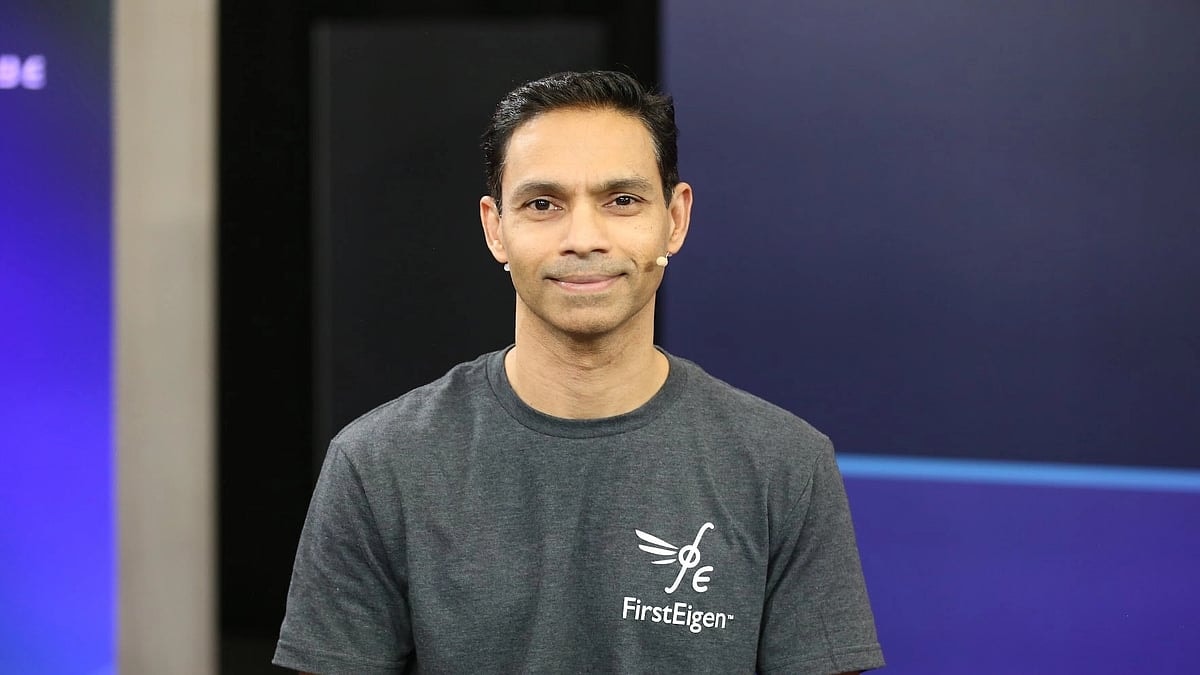AI News Bureau
(US & Canada) VIDEO | Data Governance Teams Should Lean Onto AI/ML Enabled Tools — FirstEigen CEO
Seth Rao, CEO of FirstEigen, speaks about data governance, embracing next-generation tools that leverage AI/ML, the DataWalk software, the roadblocks to the change, and the need for implementing data trust monitors to establish data trustability.
Written by: CDO Magazine Bureau
Updated 11:23 AM UTC, Fri October 6, 2023

Seth Rao, CEO of FirstEigen, speaks with Sreeram Potukuchi, Director of Enterprise Data at Republic Services and CDO Magazine Editorial Board Member, in a video interview about, data governance from the perspective of usability, quality, and trustability; embracing next-generation tools that leverage AI and ML; the DataWalk software; the roadblocks to the change, and the need for implementing data trust monitors to establish data trustability.
At the onset, Rao discusses data governance and how companies should think about it. Considering governance an umbrella term, he focuses on the usability, quality, and trustability of the data side of governance. Further, from the risk perspective of governance, he considers loss of privacy and security as risks, in addition to bad data.
Moving forward, Rao points out that the current approach taken by governance teams is not scalable from a quality and accessibility standpoint. To ensure data trustability, he urges governance teams to lean onto next-generation tools that leverage AI and ML.
He further mentions using tools that successfully automated the process of data validation that traditionally would take four to eight weeks per table. By leveraging AI and ML, the tool can complete the task in under an hour. Rao notes that AI and ML bring unprecedented computational capabilities for doing things that could take humans a long time.
According to him, the governance teams still use outdated approaches and believe that all tasks must be done with laborious effort. He also believes that the data governance process is extremely fragile and needs to be dealt with in an antifragile manner.
Rao states that data is chaotic and random, but if processes break due to its randomness, then they cannot be called robust or anti-fragile. Therefore, he recommends teams move away from old methods and use tools that have adopted AI and ML, are resilient to randomness, and still protect organizations from poor decision-making.
When asked about what success in governance looks like, Rao starts with the need to decrease dark data. He points out that even large financial services companies and banks have 90 percent of their data categorized as dark data.
According to Rao, success lies in the control of the process. He compares this to an annual health check for individuals and emphasizes the need for frequent data health checks, which are currently lacking in many companies.
“Success in data governance would be a continual decrease in dark data.”
Seth Rao | CEO of FirstEigen
Rao acknowledges that success begins with recognizing the value of data, often referred to as the new oil or gold. He affirms that success in data governance would be a continual decrease in dark data from 90% to less than 10%, achieved through continuous monitoring and ensuring trustworthiness and usability.
Speaking of roadblocks, Rao mentions organizational culture. He states that the old way of managing data manually is not scalable. He stresses the need to embrace AI and ML-enabled software like DataWalk.
One of the biggest roadblocks, says Rao, is people thinking only they can validate the accuracy of data, whereas AI and ML have gone far beyond in terms of capabilities, as they can automate mundane tasks. Therefore, he urges organizations to let AI and ML do the mundane tasks and let humans do something more use-case and organization-specific.
Furthermore, Rao states that when starting a data trust program, an organization has two options: it can begin at the end-point and monitor the trustworthiness of data before consuming it or it can start upstream, such as at the data lake, where the monitoring starts as soon as data enters the organization, which prevents downstream repercussions.
Regardless, it is crucial to implement data trust monitors throughout the entire data pipeline to ensure data trust at all times. This should be the initial step for any company looking to establish a data trust program.
Thereafter, Rao explains that due to the poor status of data, many simple and easily achievable solutions can have a significant impact on companies.
Citing an example of a FirstEigen customer, he states how switching to DataWalk for data monitoring led to a 25-50% reduction in error rates. This change also allowed the customer to redeploy resources to other areas, leading to cost and error reduction.
Rao concludes by stating that once the base is established, organizations can get management buy-in, and expand more.
CDO Magazine appreciates Seth Rao for sharing his insights with our global community.





